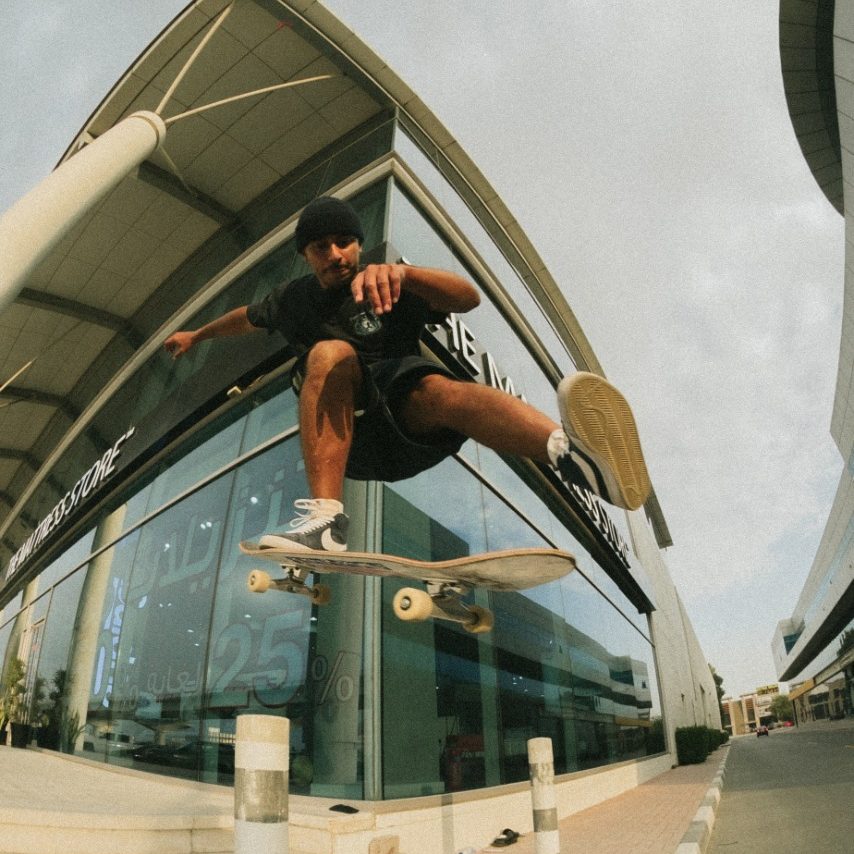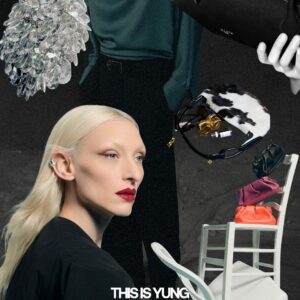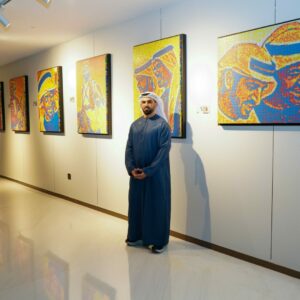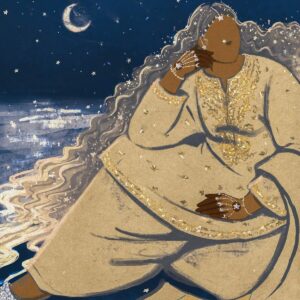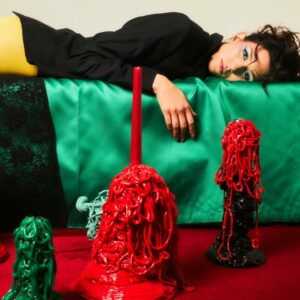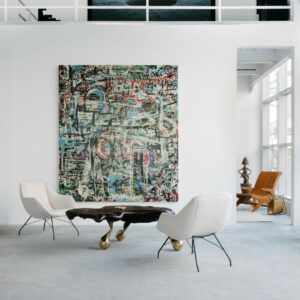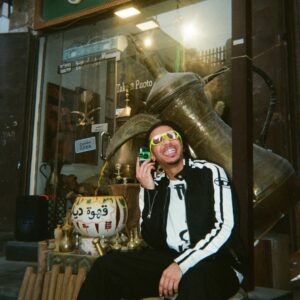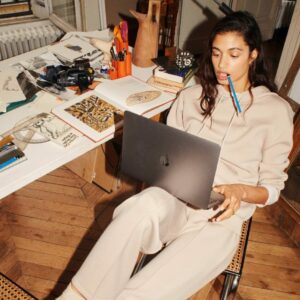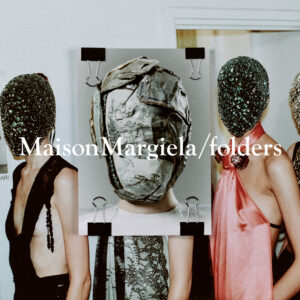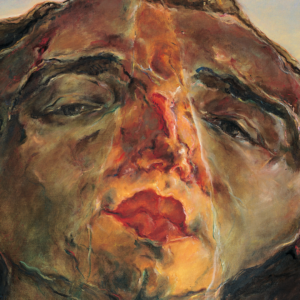Egyptian, Dubai-based skateboarder Karim Nassar, better known as nawstique on the interwebs, is riding the wave of a rapidly-growing skate culture rolling over the Middle East. nawstique represents a new generation of skaters in the region – ones bred in yellow-taped concrete jungles, fighting to gain official recognition for their sport while navigating hurdles created in the absence of any institutions dedicated to skating.
As it rises in popularity in the MENA region, skateboarding is becoming more prominent as we see the blurring of the lines between hip-hop and street culture breeding thriving sub-cultures. nawstique draws you into the UAE’s skating subculture with his laid-back, yet high-brow approach to fashion and art, all of which is pouring into the ever-evolving identity of the regional scene.
As the first Nike-sponsored Arab skateboarder, nawstique is creating seismic waves in the industry, single-handedly opening up gates that have long been locked to aspiring skateboarding professionals in the region. From picking up his first skateboard at eight years to inking a deal with one of the world’s largest sportswear giants, the 29-year-old skateboarder is paving the way for the next generation of skaters and showing them that, yes, you can actually make a living out of your passion.
Although nawstique is making his way through the industry on his own terms, and laying the groundwork for the further institutionalization of the sport, he knows there is still a long way to go. “The idea of living off of skateboarding is still tougher than it should be. Knowing that it’s growing in the right direction now, I think the idea of it is starting to resonate with key stakeholders that can make that kind of thing possible, especially with skateboarding being in the Olympics now. That’s the kind of thing that’s needed and missing here. Exposure. Growing up, seeing visiting professionals come to town from overseas opened my eyes to what’s possible on a skateboard and boosted inspiration at a crazy rate. I believe showcasing that more often will leave a very strong impact,” he says.
To celebrate his accomplishments and give a voice to the regional skateboarding world, we sat down with the trailblazing skateboarder to hear how he started out, how he got to where he is today and what he thinks the future holds for the region’s scene.
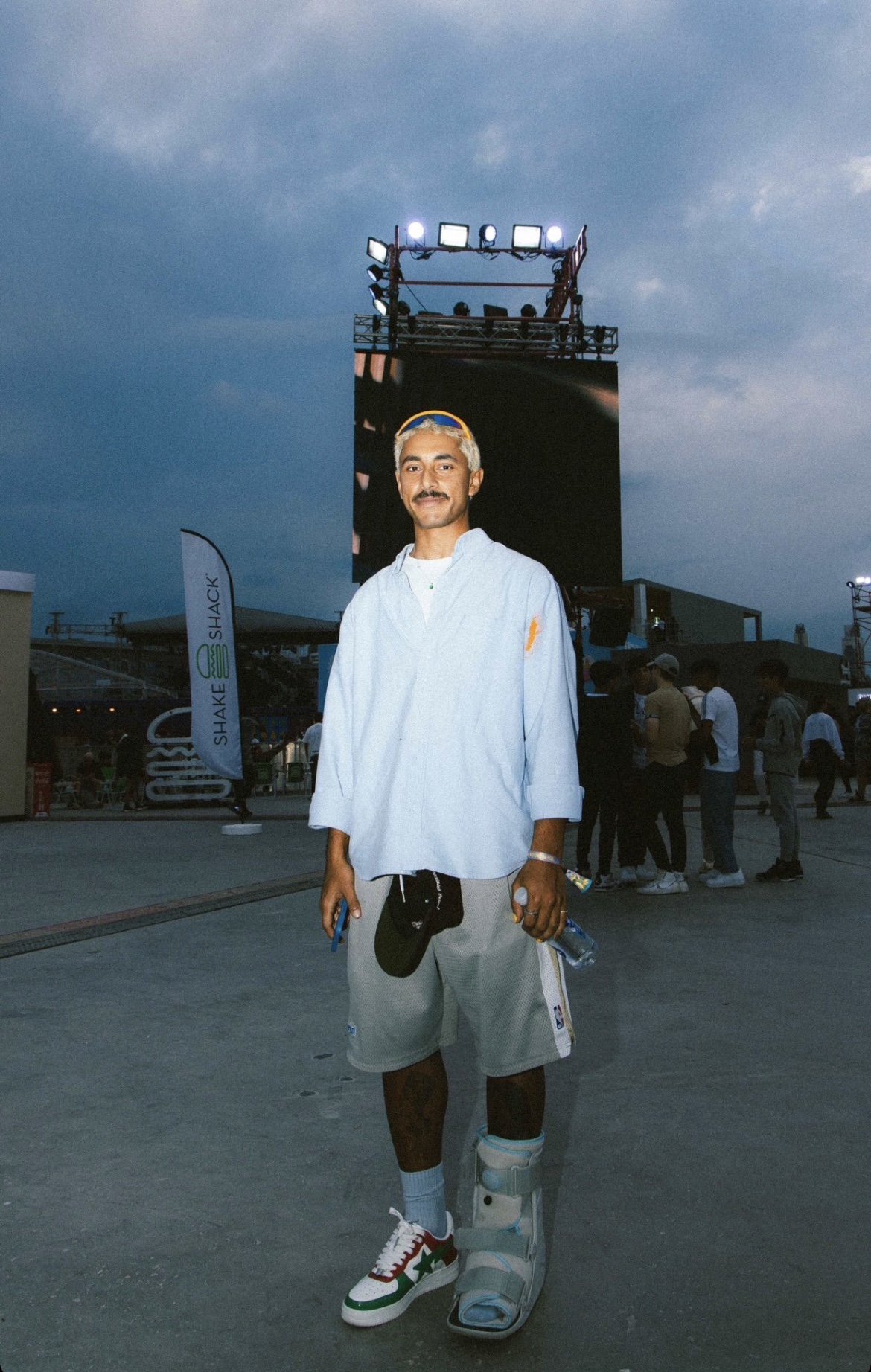
YUNG: How did you discover skateboarding? What’s your first memory of being on a skateboard? Do you remember your first board?
KN: I discovered skateboarding for the first time through my late grandpa. We were flicking through the TV and landed on an X-Games channel. I saw a bunch of guys doing all kinds of tricks and thought it was pretty cool. I remember him saying to me, “It’d be pretty cool if you did that, you should do that”. A couple of years later, on my 13th birthday, both my mum and dad coincidentally bought me two different skateboards. Mama got me a Bryan Herman Most Wanted Baker deck, and my Pops got me a Geoff Rowley Flip Skull deck. I guess the rest is history from there.
My first time getting on a skateboard was a couple of years before getting into skateboarding, actually. My family and I lived in a cozy apartment and my parents bought me this Supermarket Skateboard. It was so sick. It had a little metal handlebar that locked at the bottom of the board and when you unlocked it, it lifted upwards and looked like a hybrid skateboard/scooter. Old school shape, too. Used that for a few months then stopped. I was around 8 years old, I think.
YUNG: You grew up in Dubai when skating was pretty nascent, how did you keep up with skate culture? What was the journey like?
KN: It was pretty niche, yeah, back when I started, the only way for me to find inspiration was looking up to the older guys [who were] skating, like Maysam Faraj, Evan Collison, Tanner Lostan and Alex Medvedev who, I’m lucky to say, are still good friends of mine. YouTube wasn’t as accessible, but the local skate shop back in the day had all these videos playing in-store. Aside from that, I had a little clique that skated as well in high-school. Learnt a lot of tricks with those guys. With time, the group got smaller, then bigger, then smaller, then bigger. Today, again, I’m grateful that a lot of the people I grew up skating with either still skate with me today or are still a part of the culture in some way or another.
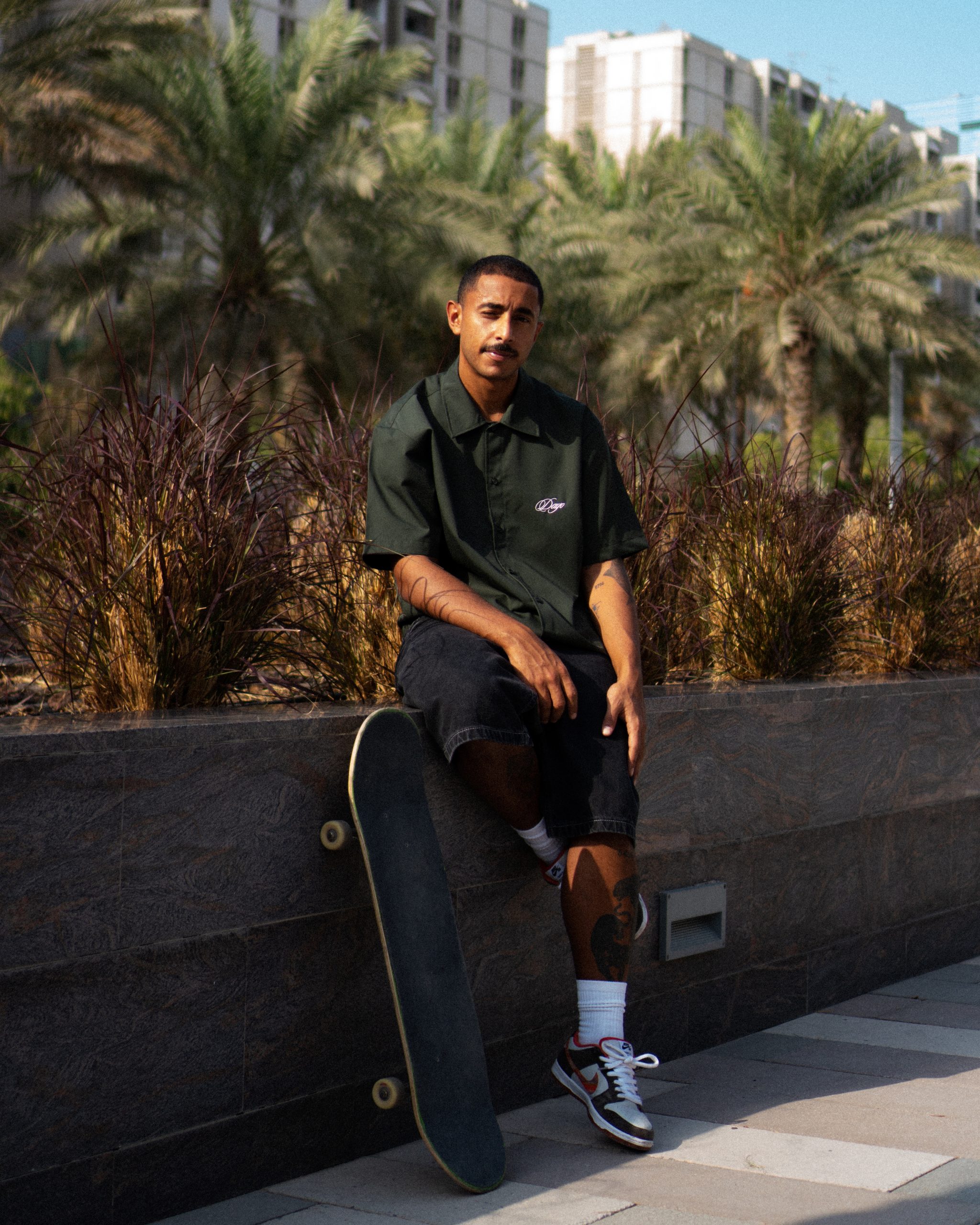
YUNG: Skateboarding in public areas across Dubai is banned, how does that feed into the skateboarding culture? Is there an element of defiance? How do you navigate these restrictions? Where do you skate?
KN: I wouldn’t necessarily say it’s banned, but I wouldn’t say it’s permitted either. I think it’s fair to say it was a little more misunderstood and strange to see back in the days, but nowadays it’s a little more ‘normal’. Street skateboarding has always been, and will always be, about skating obstacles that aren’t necessarily built to be skated. To feed into that perspective, we look around the city and see it as a playground. Where a person would look at a set of stairs as a passage to go up or down a level, a skater would look at that as a skateable obstacle and start thinking of tricks, they would want to try jumping down the stairs. Regarding navigating around these restrictions, we just sort of commando it, really. When we go out and try to film or document our skating in public areas, skating an obstacle that’s closed off and maneuvering around security, the crowds and all those other factors are part of the thrill. Sometimes, I’d need to go back to the same bench or set of stairs for weeks, or even get up at a crazy hour in the morning or night to try and go back and land a trick that I’ve had in mind.
YUNG: You recently became the first Arab skateboarder from the region to sign a deal with Nike. How did that partnership come to life? How has it impacted your career so far?
KN: I’m super grateful for the opportunity, honestly. I’m signed to them through GMG [a sports agency – ed]. We’d been having the conversation for around a year before having our last sit-down and signing things off. As a kid, I’ve always been a big fan of the brand and loved skating in their shoes. To think that I was able to pull this off, little me would lose it. As for its impact, it’s done nothing but wonders for me. I’ve been fortunate enough to work with some great people internally, and externally as well, as we bring ideas to life. We’re working on a lot of cool projects and I know it’s going to be an exciting couple of years.
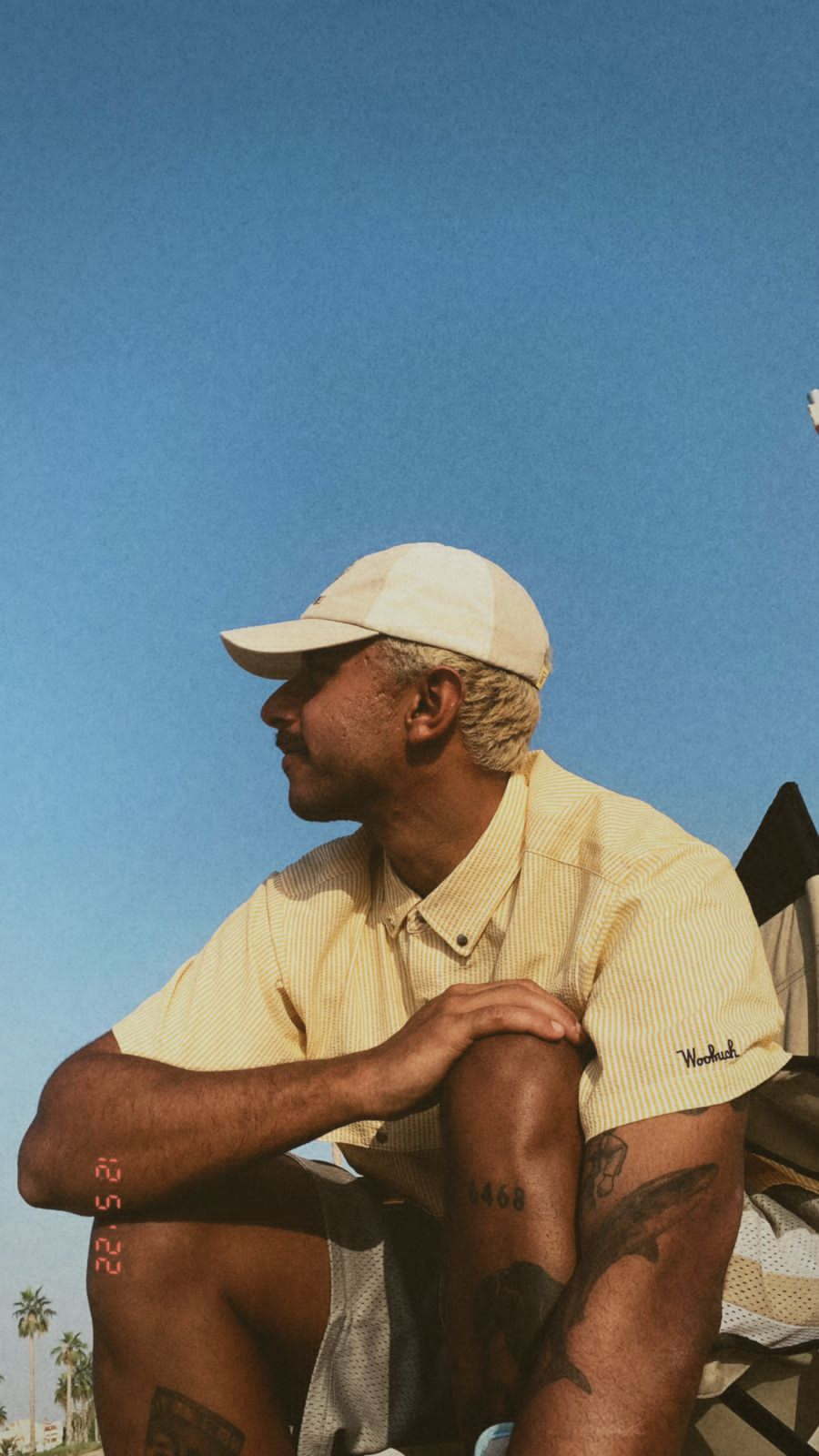
YUNG: Do you think this partnership will inspire more skaters to pursue the sport professionally?
KN: I hope so! I’ve been skating for around 17 years now. If anything, I want everyone skating (especially the younger guys) to see that it’s possible. I managed to do it and they can, too. I’m manifesting that it takes them half the time if not less to do something bigger than I have. I’m honestly trying to pave the way for the future of skateboarding in our region as best as I can.
YUNG: How difficult is it to become a professional skateboarder in the UAE, or the Middle East in general? What are some of the biggest hurdles? What support does the community need?
KN: Difficult, but not impossible. As of now, I’d say though it’s been around for a minute. The idea of living off of skateboarding is still tougher than it should be. Knowing that it’s growing in the right direction now, I think the idea of it is starting to resonate with key stakeholders that can make that kind of thing possible, especially with skateboarding being in the Olympics now. As for support, I’ve been working with Arada and we’ve been hosting weekly skate events every single weekend and they’ve been doing wonders for the scene from building world-class skateparks to hosting the World Skateboarding Championships in January. That’s the kind of thing that’s needed and missing here. Exposure. Growing up, seeing visiting professionals come to town from overseas opened my eyes to what’s possible on a skateboard and boosted inspiration at a crazy rate. I believe showcasing that more often will leave a very strong impact.
YUNG: You’ve been in the scene for over a decade. How has it changed over time?
KN: It has and hasn’t. The beauty of skateboarding and the friends I’ve made and grew up skating with, is that though we’ve skated together for a decade and circumstances have changed for the majority of us, stepping out and meeting up at a spot or skatepark still feels the same as it was, and as fun as it was when we were 10 years younger. The scene’s definitely changed over time, without a doubt. From brands coming in and out, skaters coming in and out and the creativity just getting better and better, I think, again, it’s heading in an unpredictable direction that I believe only good will come from.
YUNG: What do you think of the current widespread revival that skate culture is witnessing in the Middle East? What do you believe the future holds for skateboarding in the region?
KN: I’m not so sure I see this as a widespread “revival”. From a skater’s perspective, I feel like it’s been around and hasn’t gone anywhere. It’s great to see more attention come its way. Not just in the Middle East, but for instance, the fashion industries began working with a lot of skaters, whether that be guys like Evan Mock modeling for some of the biggest brands in the industry, to people like Lucian Clarke designing the first ever pro model sneaker under a luxury brand, that was Louis Vuitton with Virgil. I believe the future of skate culture is brighter than it has ever been. Skateboarding’s always had influence on so many different cultures and subcultures ranging from music, architecture, art, fashion, sport and more.
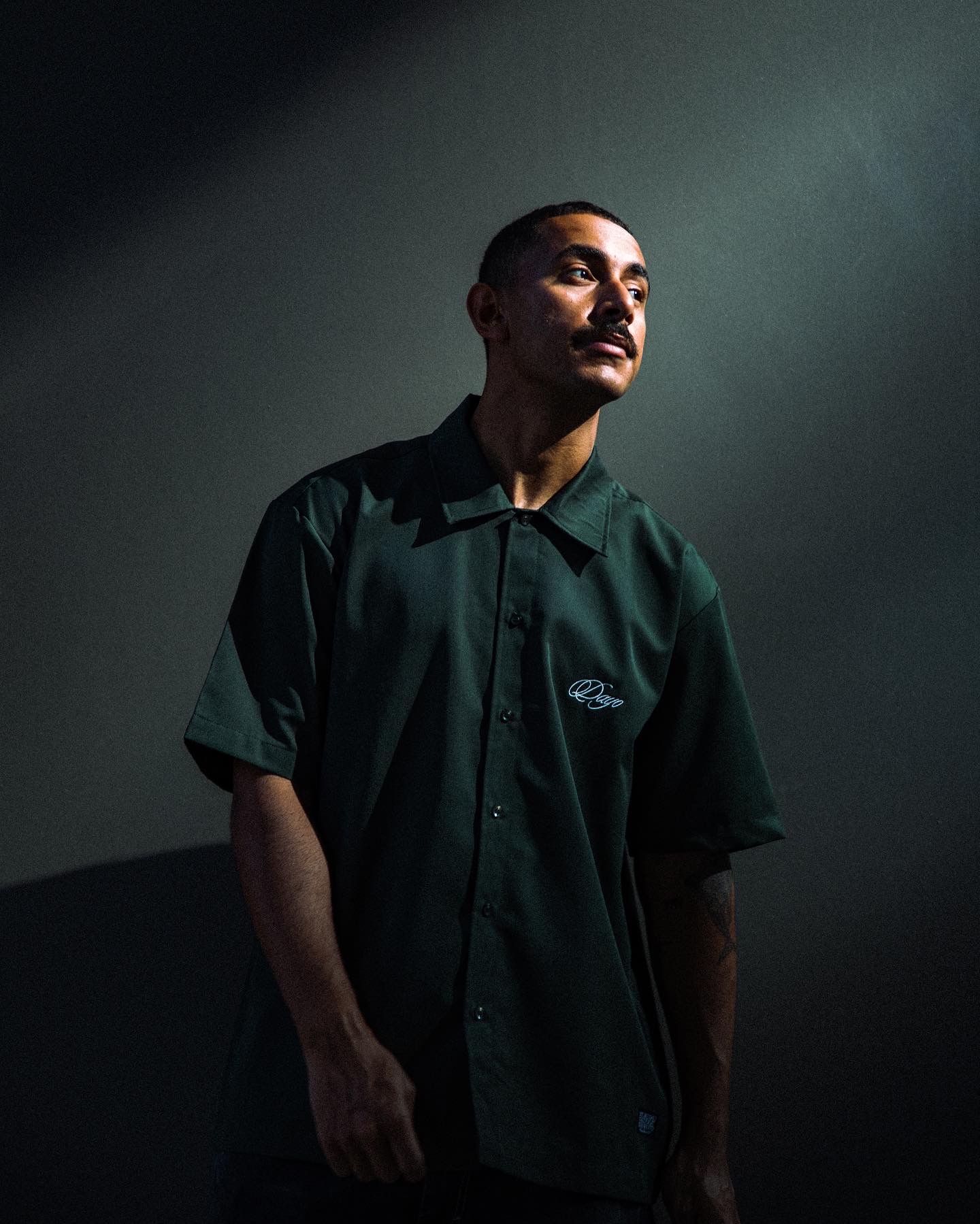
YUNG: Skateboarding is a subculture of its own in Dubai, with a pretty tight-knit community. What are some of the culture influences on the community? What musical genres and fashion styles colour Dubai’s homegrown skate culture, from your perspective?
KN: Paying homage to the guys that paved the way for my generation when I was younger for sure, namely guys like Maysam Faraj, Evan Collison, Tanner Lostan, Alex Medvedev, Shawn Barton and Tamer Ramadan who influenced my skating heavily as a kid growing up, as well as the friends I grew up skating with that inspired me day-in and day-out, like Wathek Allal, Ghassan Luqman, Lawrence Jokun and Tree Trunk. So that’s to say, the culture of skateboarding fed off of the people within it. We all inspired each other and hyped each other up.
YUNG: Are there any Arabic skating terms you guys use?
KN: Haha! Funny question, but yes, there are a few. Taaf (Ta-a-f) was a big one for a while, we used that when you get aired, or go for a fist bump and aren’t acknowledged. One of my favorites is Kheiba (Kh-ae-ba), that one comes out when someone lands a cool trick or when we see something ridiculous go down on a skateboard. Another is Khasi (Kha-si), we use that when someone claims a trick that we don’t believe they can do.
Discover more of our stories on regional art and culture here.
